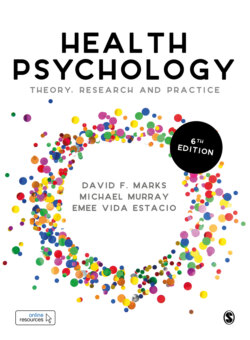Читать книгу Health Psychology - Michael Murray - Страница 99
На сайте Литреса книга снята с продажи.
Perspectives on CAM
ОглавлениеDebates around the efficacy of CAM have polarized researchers. The most basic explanation for the popular appeal of CAM is the placebo effect. The generous time, warm glow of personal attention and friendly conversation received by each individual patient with many CAM practitioners compares favourably to the brief and business-like encounters of mainstream medicine. This aspect seems particularly true in the case of cancer. For example, one Australian study found that ‘CAM use appeared to be associated with high patient acceptance and satisfaction which was not related to either cancer diagnosis or prognosis’ (Wilkinson and Stevens, 2014: 139). Another positive factor in favour of CAM is that patients ‘find these health care alternatives to be more congruent with their own values, beliefs, and philosophical orientations toward health and life’ (Astin, 1998: 1548). Arguably, the specific treatment effects per se are of marginal relevance. In light of the inconclusive evidence base, Segar (2012) outlined two main discussions around this topic. First, there were concerns regarding evidence-based medicine and whether CAM can be assessed appropriately using the currently available methods, which are based on positivist, biomedical approaches that may be incongruent with the underlying principles of CAM. Second, there were questions about whether CAM should be advocated considering that its effect may be no different from a placebo. While some commentators are concerned that CAM is pseudo-scientific, MacArtney and Wahlberg (2014: 114) argued that ‘this form of problematization can be described as a flight from social science’ and could negatively represent CAM users as ‘duped, ignorant, irrational or immoral’. While there is insufficient evidence from RCTs to support the efficacy of CAM, findings from qualitative research suggest that the use of CAM can promote feelings of control, empowerment and agency (Sointu, 2013).
In the UK, the Department of Health provides clinical guidelines for health care professionals on CAM. A systematic review by Lorenc et al. (2014) showed that a total of 60 guidelines have been produced in relation to CAM therapies. About 44% were inconclusive, mostly due to insufficient empirical evidence, while there was almost an equal proportion of guidelines either recommending or advising against CAM (19%). The World Health Organization launched a Strategy on Traditional Medicine (2014–2023) to support the development of policies and action plans to strengthen the role of CAM to improve health, well-being and people-centred health care, and to promote quality and safety of CAM through regulation and better training and skills development of practitioners. The strategy aims to build a knowledge base around CAM, regulate products, therapies and practitioners, and integrate CAM into national health care systems.
